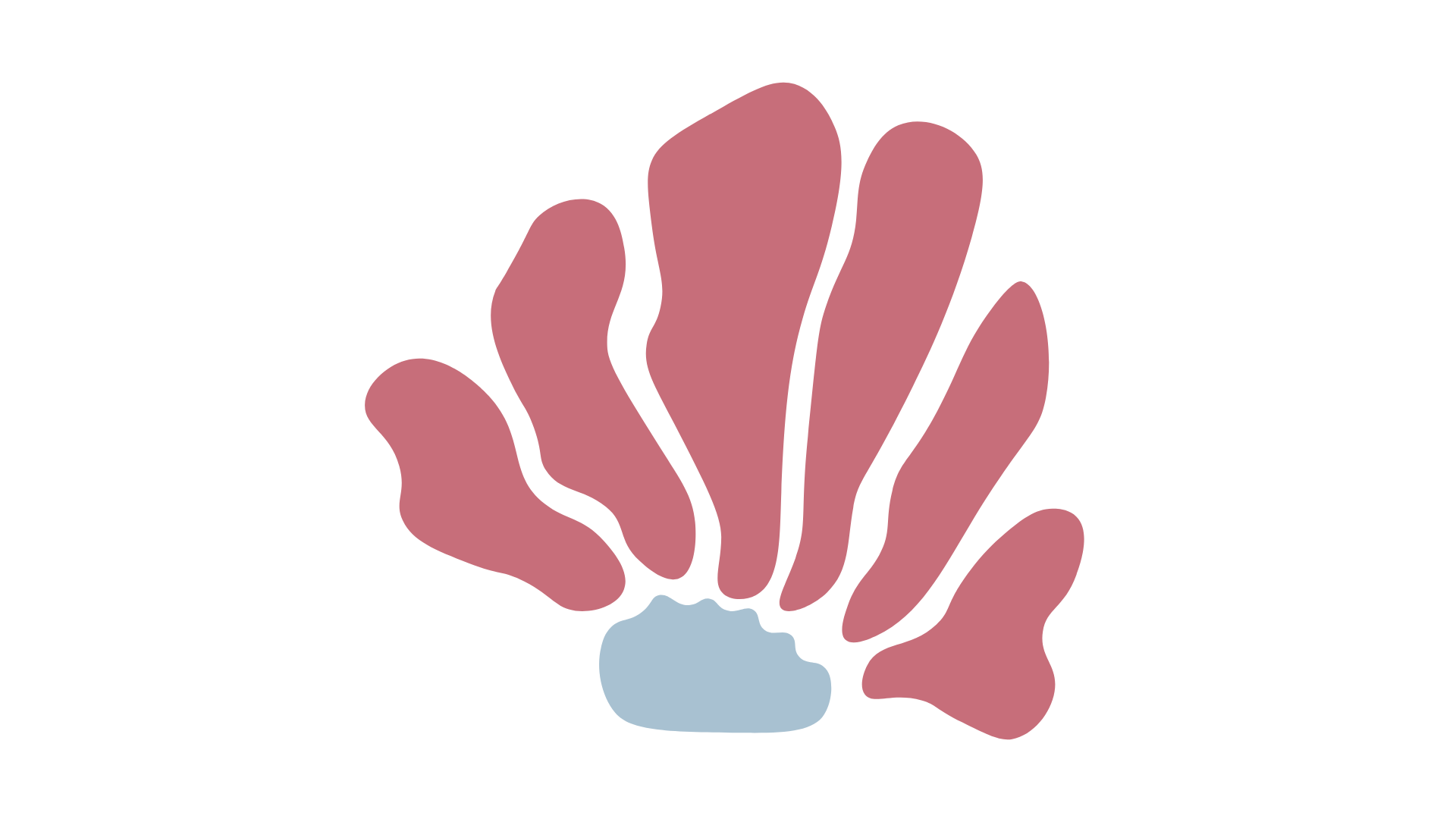Trauma therapy
A Journey of Integration and Creative Healing
Discovering Wholeness Through Parts Work and Expressive Arts
Trauma therapy that truly heals recognizes that trauma lives in the body and speaks in a language beyond words—through sensations, emotions, and the subtle divisions we create within ourselves to survive. My approach honors this complexity, weaving together Internal Family Systems, depth-oriented psychotherapy, and creative expression to help you reconnect with the fractured parts of your story and find your way back to wholeness.
Trauma therapy in my practice is not about reliving painful experiences or forcing yourself to confront what feels too overwhelming. Instead, we work gently with the protective parts that emerged to keep you safe, honoring their original purpose while helping them discover new ways of being. Through compassionate parts work, somatic awareness, and creative exploration, you'll learn to befriend the wounded places within you, creating space for integration rather than fighting against the fragmentation that trauma creates. This is healing that moves at your pace, respects your inner wisdom, and invites all parts of you into the sacred process of becoming whole.
Understanding Trauma Through the Lens of Parts
Trauma isn't simply something that happened to you; it's the way your inner system organized itself to protect you from overwhelming experiences. In my practice, I view trauma through the gentle, curious lens of parts work, recognizing that what we often label as symptoms—anxiety, depression, dissociation—are actually protective parts doing their best to keep you safe from pain they believe you cannot bear.
These protective parts emerged for good reasons. They helped you survive experiences that felt unsurvivable. Yet now, in the present moment, they may be keeping you from the depth of connection, creativity, and aliveness you're seeking. Through our work together, I help you understand these parts not as problems to be fixed, but as aspects of yourself deserving of compassion and integration.
My Therapeutic Approach to Trauma Healing
Internal Family Systems: Meeting Your Inner Community
At the heart of my trauma therapy practice lies Internal Family Systems (IFS), a transformative approach that recognizes the multiplicity within each of us. Rather than pathologizing the voices, feelings, and impulses that arise from trauma, IFS invites us to befriend these parts, understanding their positive intentions and helping them release the burdens they've been carrying.
In our sessions, I guide you in developing a relationship with your Self—that core essence of who you are that remains untouched by trauma. From this centered place, you can approach your wounded parts with curiosity and compassion, allowing them to tell their stories, express their pain, and ultimately, transform their roles in your inner system.
Depth-Oriented Psychotherapy: Exploring the Sacred Wounds
Trauma work requires descent—a willingness to journey into the depths of your psyche where the original wounds reside. Through depth-oriented psychotherapy, I support you in this sacred exploration, helping you navigate the shadowy territories where trauma has taken root. This isn't about reliving pain, but about reclaiming the parts of yourself that got lost in the darkness.
I work with dreams, symbols, and the poetic language of the unconscious, recognizing that healing happens not just through talking about trauma, but through engaging with it creatively and symbolically. Your psyche knows how to heal itself; my role is to create the conditions where this natural healing process can unfold.
Emotional Freedom Technique: Releasing Trauma from the Body
Trauma lives in the body as much as in the mind. Through Emotional Freedom Technique (EFT/Tapping), I help you gently release the energetic imprints of traumatic experiences. This somatic approach works beautifully alongside parts work, offering your protective parts a tangible way to discharge the tension and vigilance they've been holding.
Acceptance and Commitment Therapy: Living Beyond Survival
As you heal, I incorporate principles from Acceptance and Commitment Therapy to help you move from merely surviving to truly living. This means developing the capacity to hold difficult emotions without being overwhelmed by them, and committing to actions aligned with your deepest values—even when parts of you feel afraid.

The Creative Path to Trauma Integration
For the emotionally curious and creative souls I work with, traditional talk therapy often feels incomplete. You need more than words to express the complexity of your inner world. In my practice, I invite creative expression as a vital part of trauma healing—not as art therapy in the traditional sense, but as a way of giving form to the formless, voice to the voiceless parts within.
Between sessions, I offer parts therapy prompts designed to deepen your relationship with different aspects of yourself. These might include:
Journaling dialogues with protective parts
Creative expressions of what your parts are holding
Symbolic representations of your inner landscape
Poetic explorations of your healing journey
This creative engagement allows trauma to transform from a story of wounding into a narrative of profound growth and self-discovery.
What Trauma Therapy Looks Like in My Practice
The Sacred Container of Weekly Sessions
Trauma healing requires consistency and safety. I typically work with clients on a weekly basis at a scheduled recurring time, creating a reliable container where all parts of you can show up exactly as they are. This regularity helps your nervous system learn to trust, allowing deeper layers of healing to emerge organically.
Beyond the Session Room
Our work extends far beyond our time together. I encourage you to remain in conversation with the parts we explore in session, providing you with specific practices and reflections tailored to your unique inner system. This might include parts check-ins, creative exercises, or somatic practices that help you stay connected to your healing process throughout the week.
A Collaborative Journey
After our initial intake process—which unfolds over the first three sessions as we explore your family, cultural, social, medical, and mental health history—we identify three to five guiding goals for our work together. These goals emerge from your own knowing about what needs attention, combined with my clinical insights about how trauma may be impacting your life.
Who This Approach Serves Best
My trauma therapy practice resonates most deeply with individuals who are:
Already on a healing path and seeking deeper, more integrative tools
Drawn to understanding the "why" behind their patterns and behaviors
Comfortable with poetic, symbolic, and creative approaches to healing
Ready to explore the spiritual and mystical dimensions of trauma recovery
Seeking to integrate different parts of themselves into a harmonious whole
Experiencing the impact of trauma through anxiety, depression, or life transitions
If you're in your 20s, 30s, or 40s and identify as an artist, intuitive, or sensitive soul, you'll find a uniquely supportive space here. My approach honors your emotional complexity and creative nature, offering healing that feels both sacred and practical.
The Invitation to Begin
Trauma therapy in my practice isn't about fixing what's broken—it's about remembering what's whole. It's about creating space for all parts of you to be witnessed, understood, and ultimately integrated into a more expansive sense of self.
Whether you're navigating the lingering effects of childhood wounds, processing more recent traumatic experiences, or simply feeling the weight of accumulated life stressors, I offer a gentle, curious, and deeply validating space for your healing journey.
Taking the First Step
Beginning trauma therapy can feel vulnerable, especially when you've been holding so much alone. The consultation process offers us both an opportunity to feel into whether we're the right fit for this sacred work together. During our initial conversation, we'll explore what kind of support you're seeking, what you've already done to care for yourself, and what has or hasn't worked in previous therapeutic experiences.
Most importantly, you'll get a felt sense of what it's like to be in session with me—whether my approach to trauma healing resonates with your inner knowing about what you need.
Your Healing Awaits
Trauma may have shaped your story, but it doesn't have to define your future. Through our integrative work combining Internal Family Systems, depth psychology, somatic practices, and creative expression, you can transform your relationship with trauma from one of survival to one of thriving creativity and authentic self-expression.
If you're ready to explore trauma therapy that honors both your wounds and your wholeness, that speaks to both your intellect and your intuition, I invite you to reach out. Together, we can create a healing journey that feels uniquely yours—one that honors where you've been while opening doors to where you're meant to go.
For more information about scheduling and beginning your trauma therapy journey, please contact me directly.
Located in:
Sonoma County, CA
Seattle, WA
New York
FREQUENTLY ASKED QUESTIONS
-
Trauma therapy is a specialized approach to healing that addresses the lasting impact of overwhelming experiences on your mind, body, and sense of self. In my practice, trauma therapy works by gently exploring the protective parts of you that emerged in response to painful experiences, helping you understand their original purpose and creating space for integration. Rather than simply talking about what happened, we work with how trauma continues to live in your body and psyche, using Internal Family Systems, somatic awareness, and creative expression to help you reconnect with your wholeness.
-
You might benefit from trauma therapy if you notice patterns of disconnection from yourself or others, overwhelming emotions that seem disproportionate to current situations, or a sense of fragmentation within your inner world. Many of my clients describe feeling like different parts of them are at war, experiencing unexplained anxiety or depression, or struggling with memories and sensations that intrude on daily life. Trauma therapy can also support you if you've been through difficult life transitions, relationship ruptures, or experiences that left you feeling fundamentally changed in ways that traditional talk therapy hasn't fully addressed.
-
My approach to trauma therapy is deeply integrative and honors the creative, intuitive nature of healing. Rather than focusing solely on symptom reduction or cognitive reframing, I work with the parts of you that hold trauma using Internal Family Systems, combined with depth-oriented psychotherapy and somatic techniques like Emotional Freedom Technique. This means we're not just talking about what happened but engaging with how trauma continues to express itself through your body, emotions, and inner conflicts. The work is personalized to your unique story, pace, and needs, with space for creative expression and spiritual exploration as part of the healing journey.
-
No, you do not have to relive traumatic experiences in our work together. My approach is rooted in gentle, parts-based healing that respects your system's wisdom about what it can handle and when. We work with the protective parts that keep painful memories at bay, honoring their role in your survival, rather than forcing confrontation with overwhelming material. Healing happens through building internal safety, creating compassionate relationships with the parts of you that carry trauma, and allowing integration to unfold at a pace that feels manageable and empowering for you.
-
The timeline for trauma therapy is deeply personal and varies based on the complexity of your experiences, your current resources, and the goals we establish together. Some clients find meaningful shifts within a few months, while others engage in deeper, longer-term work that unfolds over a year or more. During our intake process over the first three sessions, we'll collaboratively identify three to five goals to guide our work, and I'll be transparent with you about what realistic progress might look like. This is not a quick fix but a sacred process of integration that honors your unique timing and inner wisdom.
-
Absolutely. Trauma doesn't have an expiration date, and the parts of you that hold old wounds often remain frozen in time, continuing to influence your present-day experiences. Whether your trauma occurred in childhood, adolescence, or adulthood, my approach using Internal Family Systems is particularly effective for working with these younger parts that carry the pain of past experiences. We create a compassionate space where these parts can finally be witnessed, unburdened, and integrated, allowing you to reclaim aspects of yourself that have been waiting for your attention and care.
-
A typical trauma therapy session begins with checking in about your current state and any reflections or creative work you've engaged with between sessions. We might work with specific parts that are activated or causing distress, using Internal Family Systems to understand their protective roles and needs. I may guide you through somatic awareness practices, Emotional Freedom Technique, or creative exercises to help you connect with your inner experience. Sessions are collaborative and responsive to what's alive for you in the moment, always moving at a pace that feels safe and honoring the wisdom of your system about what's ready to be explored.
-
Yes, I encourage clients to engage with the parts we discuss in session through reflection, journaling, or creative expression between our meetings. I often provide parts therapy prompts that invite you to deepen your relationship with different aspects of yourself in gentle, curious ways. This between-session work is not homework in the traditional sense but an invitation to stay connected with your inner world and continue the dialogue we begin together. The healing happens both in our sessions and in the ongoing conversation you cultivate with yourself.
-
My trauma therapy approach is designed to work with the full spectrum of traumatic experiences, whether you've lived through relational trauma, developmental trauma, complex PTSD, grief and loss, or single-incident trauma. Rather than specializing in one particular type of trauma, I work with how trauma has uniquely impacted you and created divisions within your inner system. This parts-based, integrative approach is effective because it meets you where you are, honors the specific ways your psyche organized itself for survival, and supports the personalized healing journey that your system needs.
-
Getting started begins with a consultation where we'll discuss what kind of support you're seeking, what you've already tried to help yourself with these experiences, and whether you've been in therapy before. This initial conversation gives us both a felt sense of what it's like to work together and whether my approach aligns with what you're looking for. If we decide to move forward, I conduct an intake assessment over the first three sessions, exploring different aspects of your story and collaboratively establishing goals for our work together. Please reach out through my website to schedule your consultation and begin this journey toward integration and wholeness.
Designed for the "emotionally curious soul," Creating an Integrated Self offers a sacred space for individuals who feel they have outgrown surface-level solutions. The practice caters to creatives, intuitives, and those who feel at war with themselves, helping them turn internal conflict into harmony. By viewing symptoms not as flaws but as parts of a rich inner ecosystem, the therapy invites clients to listen to their critical voices and hidden shadows with curiosity rather than judgment, ultimately weaving fragmented parts into a cohesive, vibrant whole.

















